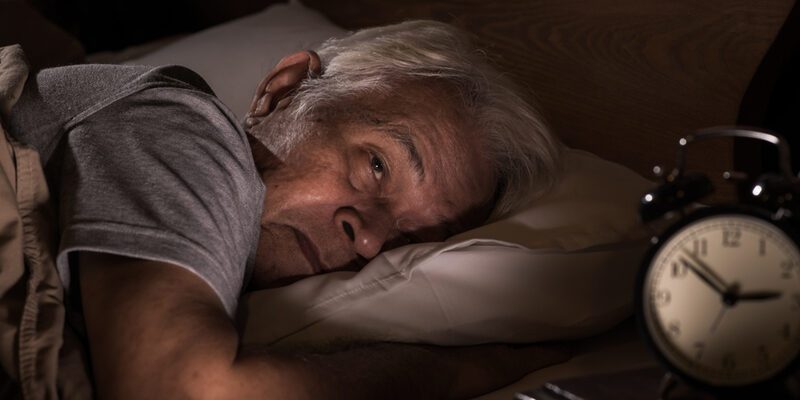Better sleep at night can have a significant impact on our mental and physical well-being. Resting among medicines, medical issues, or even in unfamiliar locations may make it difficult for seniors to acquire a minimum of 8 hours of sleep and may require memory care assisted living.
It is critical to address hours spent in bed as an integral aspect of one’s daily routine while pursuing senior health and well-being. If you or a loved one wish to enhance the amount of time spent sleeping, you must calculate the sleeping length on a daily basis.
If you or a loved one has a sleeping problem and cannot sleep for at least 5 hours each day, it is possible that you have an insomnia problem.
What are Insomnia and its Effects?
Insomnia is a critical clinical issue that creates trouble in sleeping or staying asleep for a long duration. Insomnia sleeping disorder can result in dissatisfaction, fatigue, low energy, mood swings, and poor performance. Many studies have established that insomnia is highly comorbid with psychiatric disorders and is a risk factor for the development of depression, anxiety, and suicide.
Insomnia is typically categorized based on its duration. Acute insomnia is brief and often happens when stressful situations arise.
Chronic insomnia happens many times each week, and the causes might range from the environment to clinical illnesses and drugs. Following basic sleep hygiene activities might help restore chronically interrupted sleep patterns and battle insomnia.
Insomnia is a sleep condition that causes difficulty sleeping and/or staying asleep. The disorder might be short-term (acute) or persistent (chronic). It may also appear and disappear anytime.
Types of Insomnia
There are many types of insomnia that impact our lives. Based on how long it lasts, there are three main types of insomnia. Short-term insomnia lasts between one and three weeks; Acute insomnia can extend from one night to many weeks. Chronic insomnia occurs when it occurs at least three nights per week for three months or longer. Transient insomnia normally self-limits and lasts no longer than seven days. Chronic insomnia is typically associated with physical, mental, emotional, or drug use problems.
Additionally, there are two types of insomnia: main and secondary. A sleep problem known as primary insomnia is one that cannot be attributed to a physical, psychological, or environmental cause. On the other hand, secondary insomnia is brought on by a disease or medication.
How to Recover from Insomnia?
Insomnia can impact your life both psychologically and physically. You must give a try these eight ways to recover from insomnia:
1. Create a regular sleeping and waking schedule:
Maintaining a sleep routine that works for you helps get the recommended amount of sleep each night. Sleep routines are doing activities before going to bed each night. Sleep routines are activities before bed each night. Routines can improve the quality and length of sleep. Having a good night’s sleep is essential to maintain healthy hygiene.
2. Try to Socialise:
Engaging in social activities can improve your sleep quality. Regular interaction with friends and family helps reduce stress and anxiety, common culprits of insomnia. Whether it’s a casual chat, joining a club, or participating in community events, staying socially active can create a sense of belonging and relaxation, essential for a good night’s sleep.
3. Avoid afternoon slumps without caffeine:
You shouldn’t take a midday cup of joe to get through the day. If you feel your energy levels dropping during the afternoon, try to avoid caffeine as much as possible. Refrain from drinking alcohol or caffeine at night: Try to avoid drinking alcohol or caffeine at night.
4. Work out earlier in the morning and not at night:
Morning workouts are less likely to cause distractions. You haven’t begun addressing the day’s to-do list when you first get up. You’ll also receive fewer phone calls and messages. Working out in the morning will feel more comfortable in the heat of the summer season. A morning workout can help set the tone for a healthy day. An early workout may be more compatible with your body’s hormonal balance.
5. Avoid heavy or spicy meals before you go to sleep:
If you take heavy or spicy meals before you go to sleep, then there is a possibility your sleep will be interrupted.
6. Make time for relaxing before bed:
There is a chance that your sleep may be disrupted if you do not take some time to relax before bed. Before going to bed, try to avoid any stress or anxiety and feel as comfortable as possible.
7. Set bedroom to optimize the environment for sleep:
To improve the environment for sleep, you need to change the settings in your bedroom. At Sierra Oaks Memory Care Assisted Living Community, we set – up bedroom arrangements based on the preferences of our senior residents.
8. Speak with the medical provider:
Certain drugs can sometimes be the cause of insomnia or sleeping issues. As a result, you must assess which drugs may be interfering with your regular sleep. Consult your primary care physician or a medical provider to identify which medications are causing your sleep problems.
In a Nutshell
Knowing the signs of a sleep disorder, carefully evaluating the circumstances causing insomnia, and obtaining a clear diagnosis. Then you will be following a treatment approach that may include medicine or memory care assisted living therapies are all guarantees of effective therapy for insomnia.
If you suffer from insomnia, you should consult your doctor as early as possible so that you can work together to discover a solution that will help you sleep properly.





